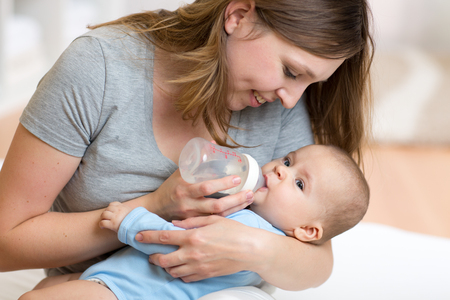Is It Safe to Feed Honey to Babies?
December 28, 2017
Whether we use it for baking, sweetening tea, or just take it straight from the jar, honey products, particularly Manuka honey products, are delicious wonders brought to us via tiny pollinating insects known as honeybees. While most individuals can consume honey without any worry, even, in some cases, feeding it to dogs or other pets in small doses, parents of small children, specifically babies under one year of age, need to ask the question of whether it's safe to feed their children this delicious natural sweetener. These are legitimate concerns for parents, just like when many worry about introducing peanut butter too young and causing allergies. When it comes to honey and infants, however, allergies are not the concern—it’s botulism.
Risk for Babies
When sealed properly, a jar of honey has very little chance of botulism spores developing within it. In fact, cases of botulism are actually rare due to the heightened focus medical professionals have placed on preventing the condition. Even so, there is the chance that small amounts of spores from the bacteria Clostridium botulinum could be within honey. While small numbers of these spores alone aren’t an issue for adults with their more mature, developed digestive tracts, these spores could cause botulism to develop in babies.
Botulism
The bacteria that can cause botulism, which also include Clostridium baratii and Clostridium butyricum, can be found in many different places naturally. The spores they create act like protective layers to help the bacteria survive their environment, according to the Centers for Disease Control and Prevention. Even when eaten, these spores don’t usually make people sick. In certain conditions, however, they can mature and develop a lethal toxin—some of these conditions include:
- Low acid
- Low salt
- Low sugar
- No or low oxygen environment
- Certain water amount
- Certain temperature range
Symptoms include blurred or double vision, drooping eyelids, difficulty swallowing, dry mouth, slurred speech, thick-feeling tongue, and muscle weakness. For infants, symptoms include feeding poorly, constipation, appearing lethargic, weakened cry, and having poor muscle tone (appearing “floppy”). Regarding foodborne botulism, the symptoms usually start between 18 and 36 hours after consuming contaminated food, but symptoms may appear as early as six hours afterward or as late as 10 days.
Recommendation
To protect an infant’s fragile digestive tract from rare instances of botulism, it would be best to avoid feeding any kind of honey to babies, even honey that’s been baked into foods, as the spores are fairly heat-resistant. You’ll just have to keep your Manuka honey cache to yourself until the child is old enough!
Copyright: oksun70 / 123RF Stock Photo


.jpg)




